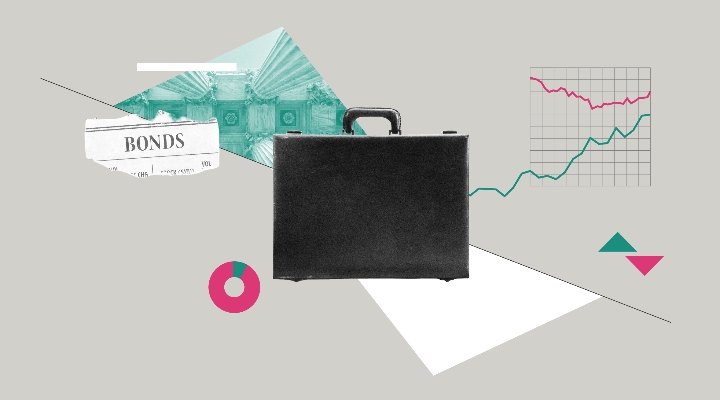
With UK gilt yields at record lows, investors may be wary of buying government bonds. Are you ready to take on some more risk for a better yield? If so, corporate bonds might be worth considering.
Corporate bonds, in essence, are debt issued by companies to fund their operations. Investors buy these IOUs and receive an income in return. Their risk is higher than for government debt but you should be compensated for this by a higher yield. If you are new to the space, it might be hard to pick some specific company bonds to invest in and so we have selected three active funds that invest in many bonds simultaneously.
Here are some highly rated options by Morningstar analysts to consider if you want to tap this universe:
Royal London Corporate Bond - Bronze
Run by fixed-income veteran Jonathan Platt since 1999, the £1.4 billion Royal London Corporate Bond is a well-diversified fund, which contains between 250 and 350 holdings to reduce ‘idiosyncratic issuer risk’. This means Platt doesn’t like to put all his eggs in one basket, since one of them could go bust and not be able to repay its debt.
The fund is Bronze-Rated by Morningstar analyst Evangelia Gkeka. “The strategy’s performance since inception has outperformed its Morningstar Category peers on an absolute and risk-adjusted basis, but it has slightly underperformed its benchmark,” she says.
The portfolio is spit into two sections: credit-agency-rated “high-profile” bonds (at least 80%) and under-researched “low-profile” bonds, which offer a higher return since they are more prone to mispricing. “These include off-benchmark exposures such as unrated, high-yield, and non-GBP bonds and must exhibit strong covenants and/or a securitised structure to be considered,” explains Gkeka.
The fund has a bias towards secured bonds in sectors such as social housing, investment trusts, and structured securities. It has a 12-month yield of 3.53% and has produced a 10-year annualised return of over 6%.
BlackRock Corporate Bond - Silver
“Flexibility with an eye on risk makes this an attractive option for sterling corporate bond investors,” says Morning analyst Louise Babin about the BlackRock Corporate Bond fund and attributes to it a Silver Rating.
The fund, managed by Ben Edwards since 2015, has a flexible investment approach. Indeed its portfolio construction is not constrained by its benchmark, the ICE BofAML Sterling Corporate & Collateralised Index, and this has led to impressive results during Edwards' tenure from May 2012 to July 2019. The fund has produced an annualised 5.5% return over the past five years and has a 12-Month Yield of 2.45%.
In particular, the portfolio has benefited from having a range of positions across financials, asset-backed securities, high-yield bonds, duration and cross-market plays. However, Babin points out that “Edwards avoids adding risk just for the sake of returns.”
She adds: “A solid manager and a well-implemented process backed by BlackRock's well-established fixed income platform make BlackRock Corporate Bond a strong choice in the GBP corporate bond Morningstar Category.”
PIMCO GIS Global Investment Grade Credit Fund (GBP Hedged) - Silver
With over £20 billion in assets, the PIMCO GIS Global Investment Grade Credit Fund retains a Morningstar analyst of Silver, as the team takes advantage of market volatility to scoop up select emerging-markets corporate issuers. “A move that has so far paid off,” says Morningstar analyst Samiya Jmili.
Jmili believes the fund owes its success "to the skill of its veteran lead manager (Mark Kiesel ), the support of an impressive group of corporate bond managers, and a versatile process that draws on the firm's robust macroeconomic and fundamental research".
Kiesel has steered the fund for more than 16 years and has drawn on the firm's myriad resources for ideas, such as the macroeconomic analysis that takes place in PIMCO's forums and regional committees. The fund has produced a 5-year annualised return of 3.8% and has a 12-Month Yield of 2.25%.
Last but not least, in keeping with the firm’s cautious stance toward corporate credit risk, Kiesel has worked to reduce the portfolio’s credit sensitivity, bringing it roughly in line with the market’s. However, the portfolio has maintained its longtime overweightings to banks, pipelines and gaming, while continuing to downplay industries vulnerable to disruption, such as retailers and utilities.





























